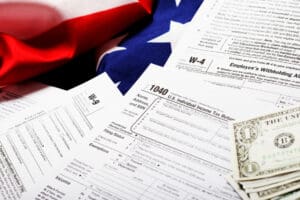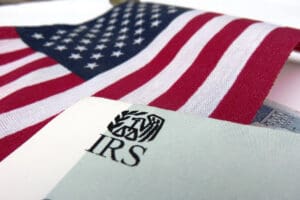By Marie-Claude Péthel And Gerry De Luca From DEMERS BEAULNE
Canadian employers who temporarily assign an employee to the U.S. will have to withhold U.S. income deductions if the employee’s salary earned in the U.S. is taxable.
[lgc_column grid=”25″ tablet_grid=”40″ mobile_grid=”100″ last=”false”] [/lgc_column]
[/lgc_column]
[lgc_column grid=”75″ tablet_grid=”60″ mobile_grid=”100″ last=”false”]
U.S. Taxable Income
According to American law: Canadian companies that temporarily assign an employee to the U.S. are not required to withhold income taxes from the employee’s salary for services rendered in the U.S., provided that:
- the work is performed by a non-resident of the United States for one or more periods not exceeding a total of 90 days during the current tax year; and
- the total salary earned in the United States does not exceed US $3,000.
[/lgc_column]
According to the Canada-United States Tax Convention:
If a Canadian company assigns an employee to the U.S. but does not have a permanent establishment in that country, it may be able to benefit from the Canada-United States Tax Convention.
In such cases, the Canadian employer could be spared the requirement of withholding American income taxes as long as the proportion of income earned by the employee while in the U.S. was less than $10,000 per year.
[lgc_column grid=”75″ tablet_grid=”60″ mobile_grid=”100″ last=”false”]
Even if this income earned from an American source exceeds this $10,000 threshold, the employer may be exempt from their American income tax obligations if:
- the employee was in the U.S. for fewer than 183 days during a given 12-month period beginning or ending during the year; and
- the employee’s salary is not paid by an American employer or a Canadian company with a permanent establishment in the U.S.
[/lgc_column]
[lgc_column grid=”25″ tablet_grid=”40″ mobile_grid=”100″ last=”false”] [/lgc_column]
[/lgc_column]
However, this exemption may only apply to federal taxes, as states do not automatically apply the tax convention benefit. Make sure to verify the tax rules in the state where the services are performed.
Employer and Employee Obligations
Form 8233 “Exemption from Withholding on Compensation for Independent and Dependent Personal Services of a Nonresident Alien Individual”
[lgc_column grid=”25″ tablet_grid=”40″ mobile_grid=”100″ last=”false”] [/lgc_column]
[/lgc_column]
[lgc_column grid=”75″ tablet_grid=”60″ mobile_grid=”100″ last=”false”]
Even if employees are exempt under the Canada-U.S. Tax Convention, they must complete sections I, II, and III of form 8233, sign it, and submit it to their employer if their pay exceeds the base $3,000 exemption threshold set by the Internal Revenue Service (IRS).
The employer must then complete section IV of form 8233, sign it, and file it with the IRS.
This personal income tax return discloses wages earned in the United States but will make it possible to claim the tax exemption under the Canada-United States Tax Convention.
[/lgc_column]
Furthermore, it may also be necessary to complete form 8840 “Closer Connection Exemption” to prevent American taxation of the employees’ worldwide income, given the employees’ closer connection with Canada.
Anyone who fails to file the above returns subjects themselves to IRS penalties. Keep in mind that the U.S. Customs and Border Protection Service and the IRS are currently working to expand their ability to collaborate electronically. A growing number of border services officers are beginning to ask about tax filing. For this reason, it is important to follow the tax compliance rules outlined in this Tax Bulletin in the future to prevent Canadian employees from being denied entry into the U.S. and to avoid any penalties.


